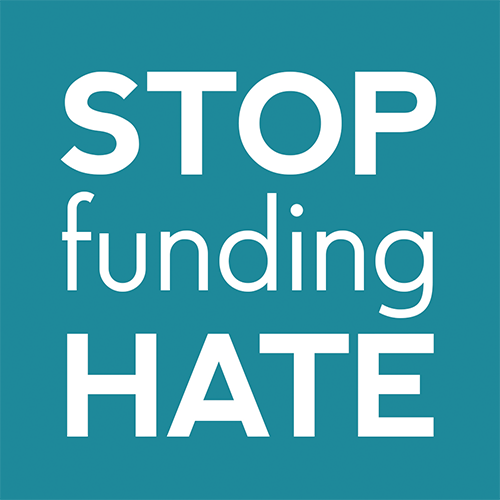The long-term goal of Stop Funding Hate is to make media hate unprofitable, by persuading companies to apply a basic ethical check when they decide where to advertise.
One of the core ideas of the campaign is that hate in the media is often driven by financial incentives. Newspapers print stories demonising migrants, Muslims, trans people and other groups in part because hate sells: It drives newspaper sales, and this in turn boosts income from advertising.
As print sales decline and more news moves online, this problem is intensifying, because the media is increasingly reliant on advertising. Amid heightened competition, some of our long-established newspapers have become more extreme – and we’ve also seen an explosion in new media sites that play on fear, hatred and prejudice to drive “clicks”.
Advertising money is key
But the money that fuels this problem could also be part of the solution: If enough big companies commit to switching their advertising away from publications that incite hatred, and towards those that report accurately and fairly – this could be the key to making hate unprofitable.
Stop Funding Hate’s aim is not to put anyone out of business. The newspapers we are challenging have the wherewithal to do their work without fuelling hatred against minority groups. But to bring about a healthier and fairer media, we have to challenge – and change – the current business model.
Overcoming the taboo around advertising
Traditionally, advertisers would insist that it was not their place to make a judgement about the editorial content that their advertising was funding. Their job was just to pay for the promotion and leave ethical considerations aside.
But with hate crime on the rise, and amid growing awareness of the harm that media hate is causing, more and more companies are recognising that this is no longer sustainable.
In the UK, the Stop Funding Hate campaign has been gaining traction. A string of companies have ended promotions with the Daily Mail, Sun or Express after customers raised concerns. In the US, almost 4,000 advertisers have dropped the far-right website Breitbart following similar pressure from Sleeping Giants.
Last year a number of big brands suspended their advertising with YouTube after their ads appeared alongside extremist content. There is now growing pressure on Google (which owns YouTube) – alongside Facebook and the other tech companies – to deal with the hate being monetised through their systems.
Recently the world’s biggest advertiser, Unilever, announced that “we will not invest in platforms or environments that do not protect our children or which create division in society, and promote anger or hate. We will prioritise investing only in responsible platforms that are committed to creating a positive impact in society”.
Unilever is widely seen as a global leader in business ethics, so their intervention is likely to influence many other companies. A subject that may once have been taboo is now becoming a mainstream corporate social responsibility issue.
Ethical advertising as a long-term solution to media hate
Stop Funding Hate has been working with the United Nations – and with advertising professionals – to develop the idea of “ethical advertising”.
While pulling ads from a single publication is likely to have some impact, to make this change sustainable, companies will need to put guidelines in place to ensure they avoid funding hate on an ongoing basis.
If enough brands follow Unilever’s lead, we could reach the point where publishing stories that demonise minority groups is simply no longer profitable.
Ethical advertising could also help ensure that good quality journalism is properly funded. Last year, over $200 billion was reportedly spent on digital advertising alone. If even a fraction of this money was redirected away from publications that use hate to drive clicks – and towards those many outlets that produce reliable and responsible journalism – this could have a transformative effect on the media worldwide.
